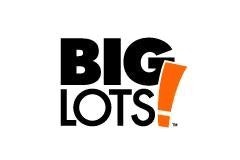Since the beginning of the year, Big Lots, Inc. (NYSE:BIG) has been quite volatile. The company’s stock had surged from around $28.50 per share to nearly $38.80 per share in the middle of May, and then dropped to around $33.80 per share at the time of writing. Famous investors such as Joel Greenblatt, Richard Snow and Ray Dalio have Big Lots in their portfolios. Should investors follow these successful investors into Big Lots? Let’s find out.
Consistent share buybacks
Big Lots, Inc. (NYSE:BIG) is considered to the biggest broadline closeout retailer, operating 1,574 stores in the U.S. and Canada. The company sources closeout merchandise at lower costs, offering it to customers at lower prices than those of traditional discount retailers. In the past five years, Big Lots has consistent grown its number of stores from 1,339 in 2008 to 1,574 in 2012. During that time period, Big Lots has also consistently produced positive net income, fluctuating in the range of $152 million to $223 million. The company’s earnings-per-share has kept rising in the past five years as well, mainly due to consistent share buybacks. The share count has been reduced from 82 million in 2008 to only 59 million in the first quarter 2013.
Lower guidance but cheaply valued
In the first quarter 2013, Big Lots, Inc. (NYSE:BIG) experienced a drop of 2.9% in its comparable same-store sales. Its net income decreased more than 20.6%, from $40.75 million in the first quarter last year to $32.33 million this year. The company’s earnings-per-share came in at $0.56, 12.5% lower than the earnings-per-share of $0.64 that it reported last year. The company also lowered its earnings guidance for the full year. It expected net sales to rise by 1%-2%, while the adjusted non-GAAP consolidated income from continuing operations was estimated to be in the range of $2.87 to $3.12 per share. Big Lots is trading at $33.80 per share, with the total market cap of around $1.9 billion. The market values Big Lots at only 5 times its trailing EBITDA (Earnings Before Interest, Taxes, Depreciation and Amortization).
Dollar General Corp. (NYSE:DG) & Target Corporation (NYSE:TGT) – lower ROIC but higher valuation
Compared to its larger peers, such as Dollar General and Target, Big Lots, Inc. (NYSE:BIG) seems to be quite cheaply priced.
Dollar General is currently trading at $51.10 per share, with the total market cap of $16.7 billion. The market values Dollar General at 9.8 times its trailing EBITDA. For the full year 2013, Dollar General Corp. (NYSE:DG) expected its year-over-year sales growth to stay around 10%-11% with the same store sales growth of 4%-5%. The diluted earnings-per-share, excluding note refinancing charges or secondary stock offerings expenses, was estimated to be in the range of $3.15 to $3.22 per share.
Target Corporation (NYSE:TGT) is also more expensively valued on the market than Big Lots, Inc. (NYSE:BIG). At $70 per share, Target is worth around $44.90 billion, with the market valuing it at 7.4 times its trailing EBITDA. In the first quarter 2013, Target experienced a decline in both its top line and its bottom line. While revenue decreased from $16.87 billion last year to $16.7 billion this year, its net income dropped by 28.5% to only $498 million or $0.77 per share. Target has returned cash to it shareholders via both dividend payments of $232 million and share buybacks of $547 million, however. For the full year, Target expected that its earnings-per-share would be in the range of $4.12 to $4.32.
What I like about Big Lots, Inc. (NYSE:BIG) is its profitability, with the highest return on invested capital at 18.95%. Dollar General Corp. (NYSE:DG) ranked second with an 11.44% return on invested capital, while the return on invested capital at Target Corporation (NYSE:TGT) is only 6.28%. Income investors might like Target due to the fact that it is the only company that pays dividends among the three. Its dividend yield is around 2.5%.
My foolish take
Big Lots seems to be a good pick for long-term investors due to its low valuation, high return on invested capital, and consistent share buybacks. Instead of paying dividends, Big Lots has returned cash to its shareholders via share repurchases. If Big Lots has the same valuation as Target Corporation (NYSE:TGT), its share price should reach $50 per share–a nearly 50% premium compared to its current trading price.
Anh HOANG has no position in any stocks mentioned. The Motley Fool owns shares of Big Lots.
The article This Closeout Retailer Is a Good Buy originally appeared on Fool.com.
Copyright © 1995 – 2013 The Motley Fool, LLC. All rights reserved. The Motley Fool has a disclosure policy.




